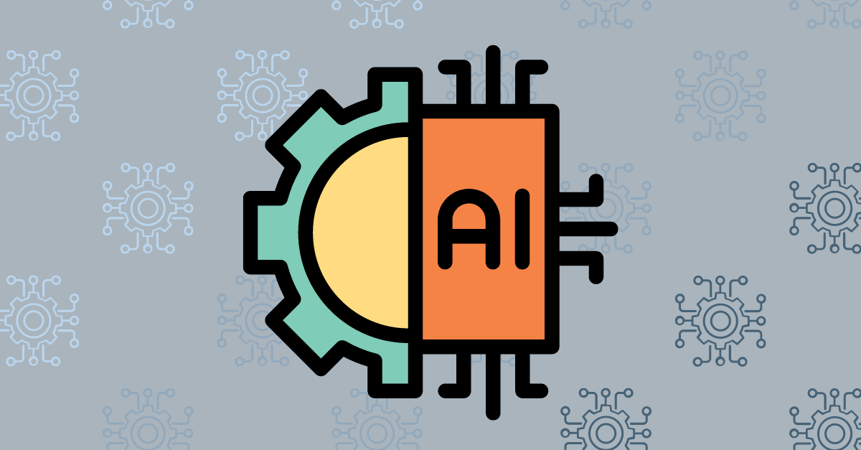
In today's fast-paced business world, staying competitive is crucial. For consultancy firms like Upstream Tech, which specialises in SaaS solutions such as monday.com, HubSpot, and Aircall, leveraging technology to streamline operations and boost productivity is a core mission. One of the most significant advancements in recent years is artificial intelligence (AI). However, a compelling question arises: can "good enough" automation outperform advanced AI in delivering desired business outcomes?
Understanding Automation and AI
Before diving into the debate, it’s essential to understand the difference between automation and AI. Automation uses technology to perform tasks with minimal human intervention, following pre-set rules and workflows to complete repetitive tasks efficiently. AI, on the other hand, includes machine learning, natural language processing, and other technologies that enable machines to learn from data, make decisions, and improve over time without explicit programming.
The Power of Automation
Automation has revolutionised business operations. Tools like monday.com, HubSpot, and Aircall have transformed how companies manage projects, engage with customers, and handle communications. Automation in these platforms can manage routine tasks, such as scheduling meetings, sending follow-up emails, or routing calls to the appropriate departments. This not only saves time but also reduces errors, ensuring a smoother operation.
For many businesses, this level of automation is "good enough." It significantly enhances efficiency and allows employees to focus on more strategic tasks. Automation can be straightforward to implement, requiring less time and investment compared to AI, making it a practical choice for many businesses.
When Automation Outshines AI
In many scenarios, automation can outperform AI, especially when tasks are repetitive, well-defined, and require minimal variability. Here are some key reasons why automation often beats AI:
-
Cost-Effectiveness: Implementing advanced AI solutions can be costly and resource-intensive. In contrast, automation tools are often more affordable and quicker to deploy, providing immediate efficiency gains without significant investment.
-
Simplicity and Reliability: Automation follows pre-set rules and workflows, making it predictable and reliable. Businesses can trust automation to handle repetitive tasks consistently without the complexity of AI systems that may require ongoing tuning and maintenance.
-
Faster Implementation: Automation solutions can be implemented swiftly, allowing businesses to start reaping the benefits almost immediately. AI, with its need for data training and algorithm adjustments, often takes longer to deliver results.
-
Sufficient for Many Tasks: For many business functions, especially routine and repetitive ones, automation is sufficient. Tasks like data entry, scheduling, and basic customer interactions can be handled efficiently with automation, providing substantial productivity boosts.
Can Automation Mimic AI?
In some cases, businesses attempt to mimic AI capabilities using advanced automation techniques. Rule-based systems and sophisticated workflows can give the illusion of intelligent decision-making. While these systems can be highly effective for specific tasks, they lack the adaptability and learning capabilities of true AI.
Faking AI with automation can be a viable strategy for businesses with limited budgets or simpler needs. However, it’s important to recognise the boundaries of this approach. Without the ability to learn and adapt, these systems may struggle to handle unexpected situations or evolve with changing business environments.
Striking the Right Balance
For consultancy firms like Upstream Tech, the goal is to help clients strike the right balance between automation and AI. This involves assessing the specific needs of each business and determining where automation can provide a significant advantage over AI.
-
Identify Key Areas for Automation: Evaluate which aspects of the business would benefit most from automation’s efficiency and reliability. For example, routine customer service tasks, basic data processing, and standard project management tasks.
-
Leverage Existing Automation: Utilise advanced automation features within SaaS platforms to handle routine tasks. This creates a solid foundation for efficiency that can be enhanced as needed.
-
Consider Incremental AI Solutions: For more complex needs, introduce AI in phases, starting with areas where it can make an immediate impact. This allows businesses to experience the benefits of AI without a massive upfront investment.
-
Continuous Evaluation and Optimisation: Continuously monitor the performance of both automation and AI solutions, gather feedback, and make necessary adjustments to ensure they evolve with the business.
In the debate between automation and AI, the answer isn’t one-size-fits-all. For many businesses, advanced automation can outperform AI by providing significant efficiency gains quickly and cost-effectively. However, as business needs grow more complex, the adaptive and learning capabilities of AI become indispensable.
At Upstream Tech, our expertise lies in guiding businesses through this technological landscape, helping them leverage the best of both worlds—automation for efficiency and AI for intelligent growth. Whether you’re looking to optimise your use of monday.com, HubSpot, or Aircall, our team is here to provide the strategic insights and implementation support you need to stay ahead in the digital age.

.jpg?width=624&height=427&name=Blog%20feature%20images%20(900%20x%20525%20px).jpg)
